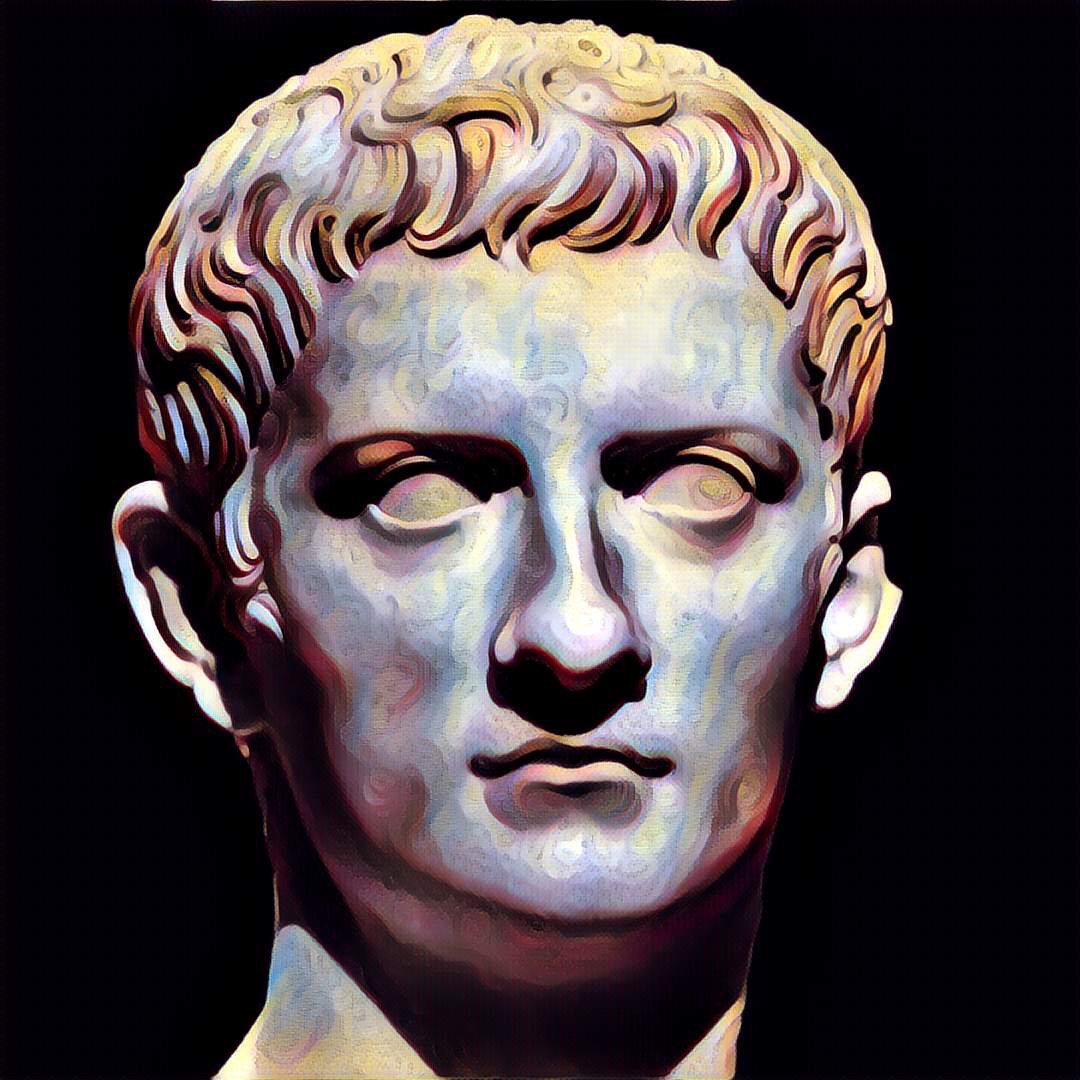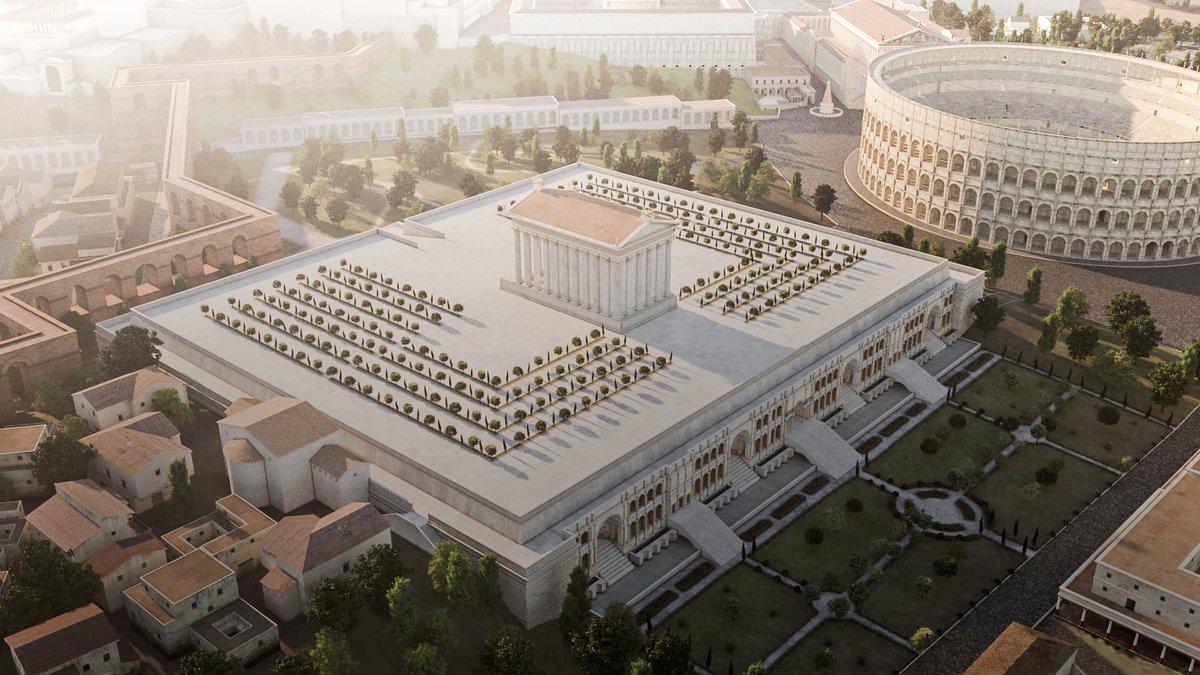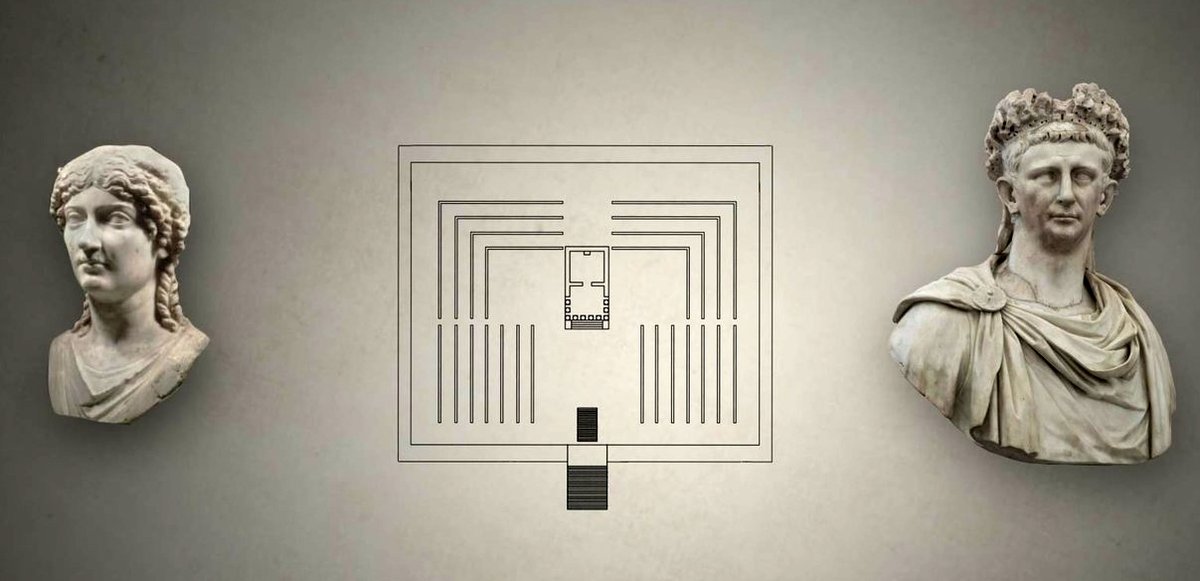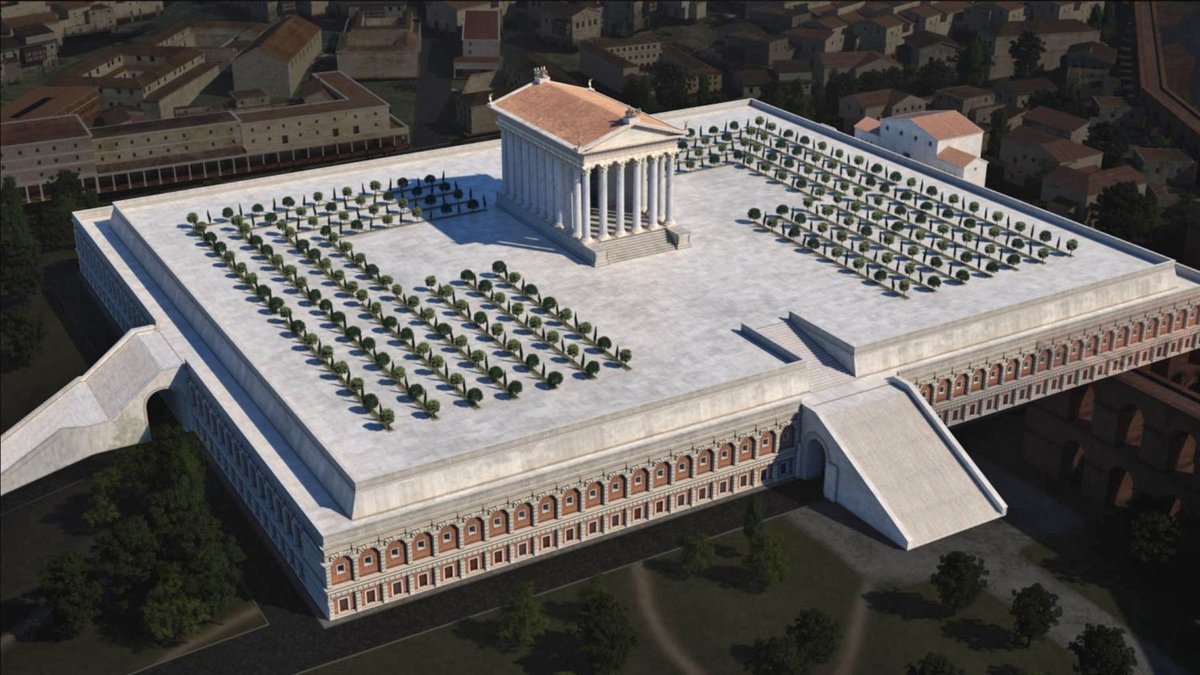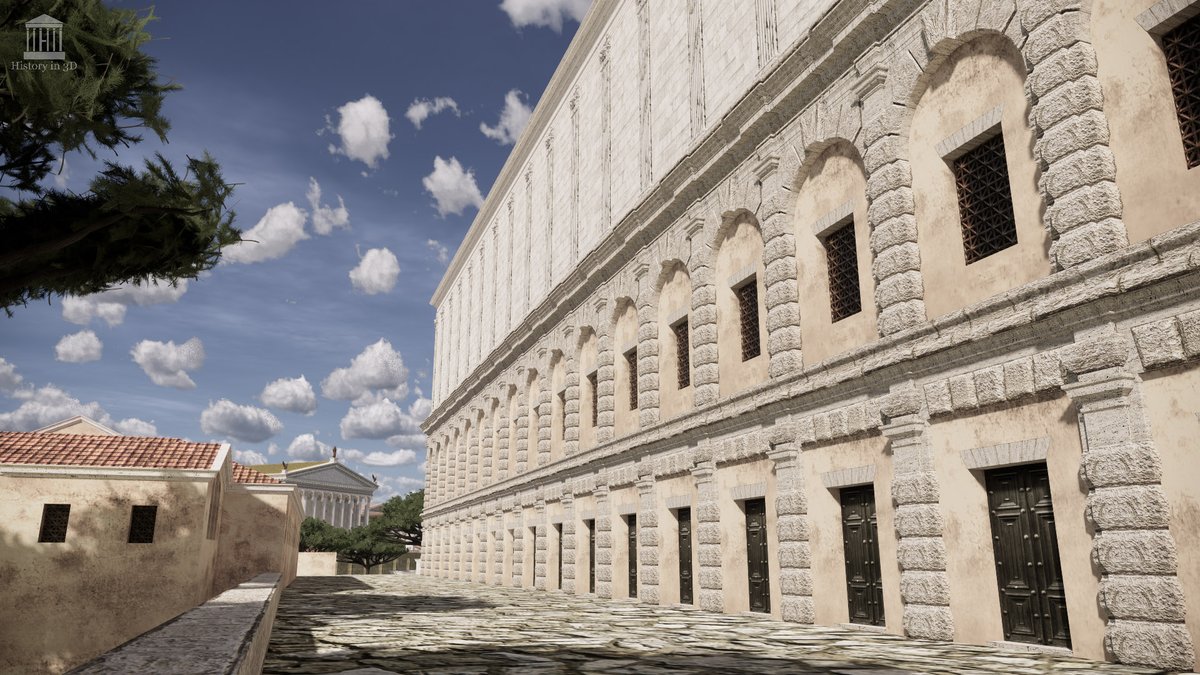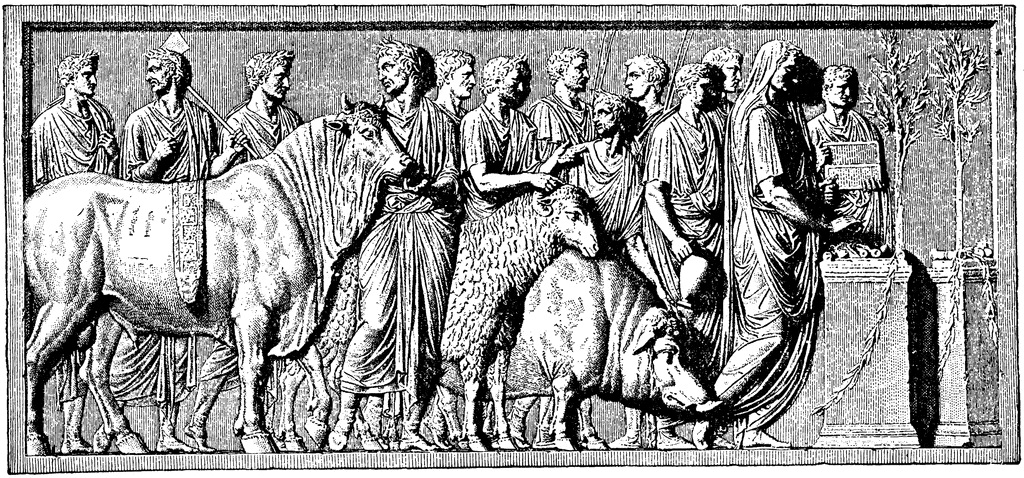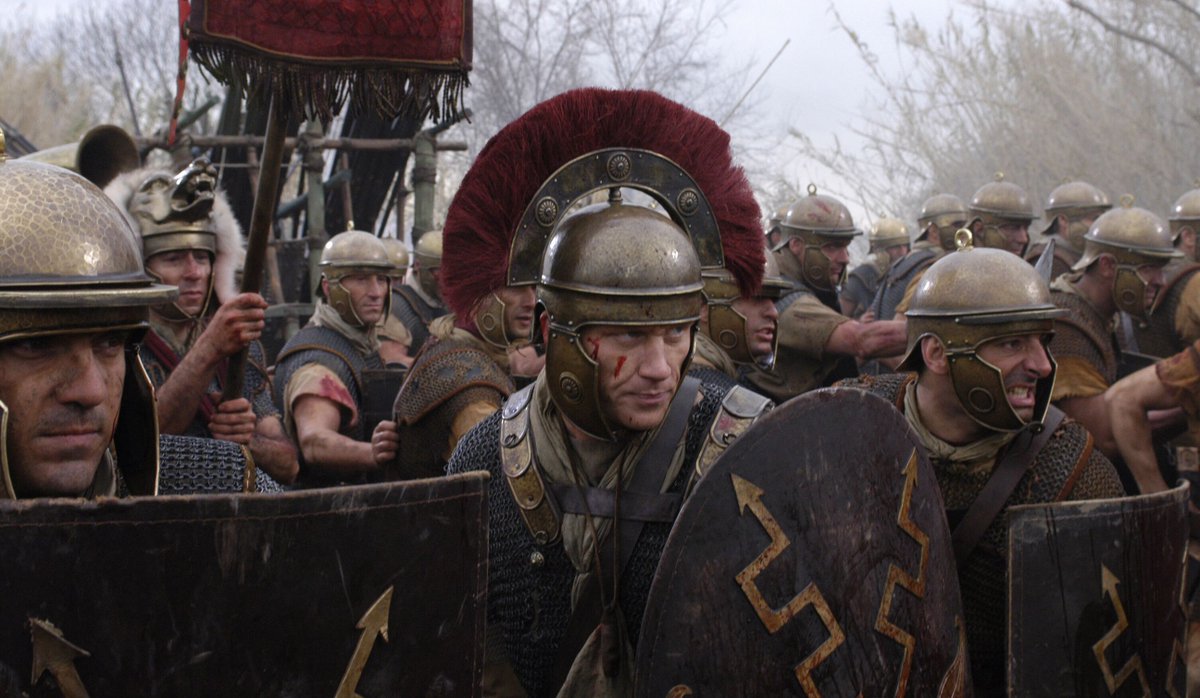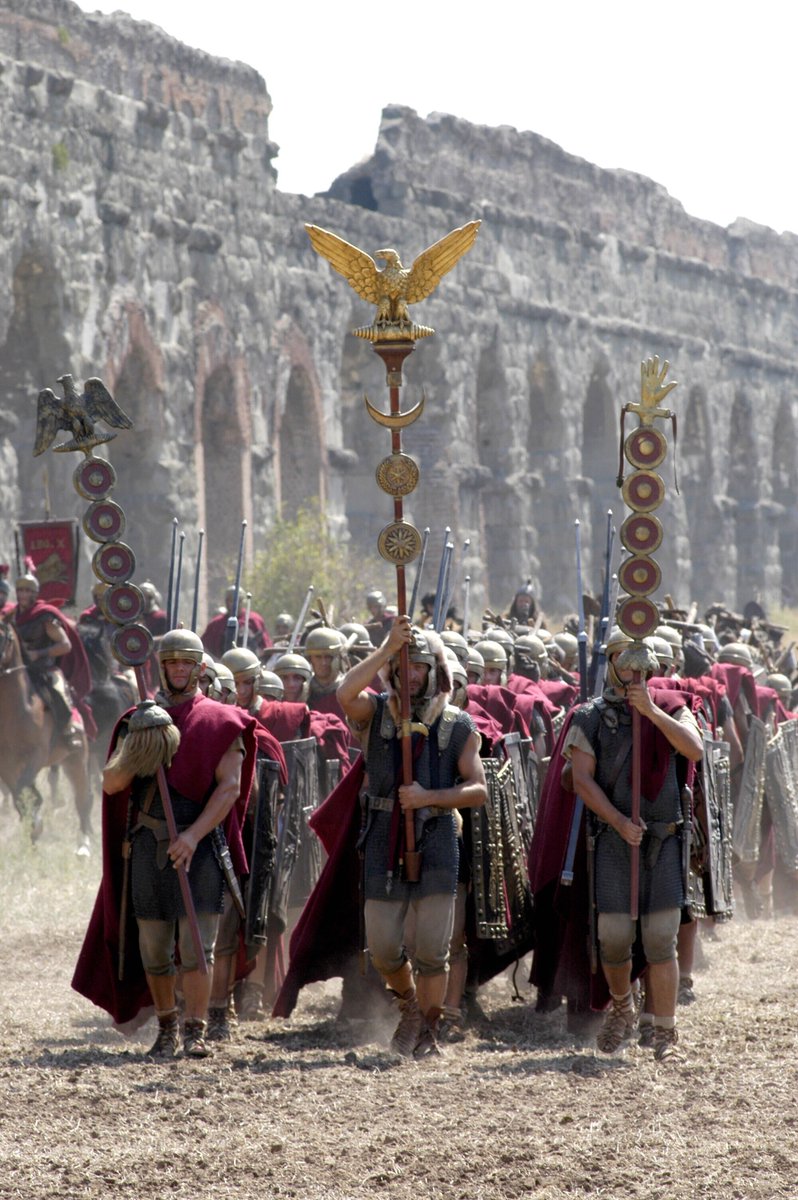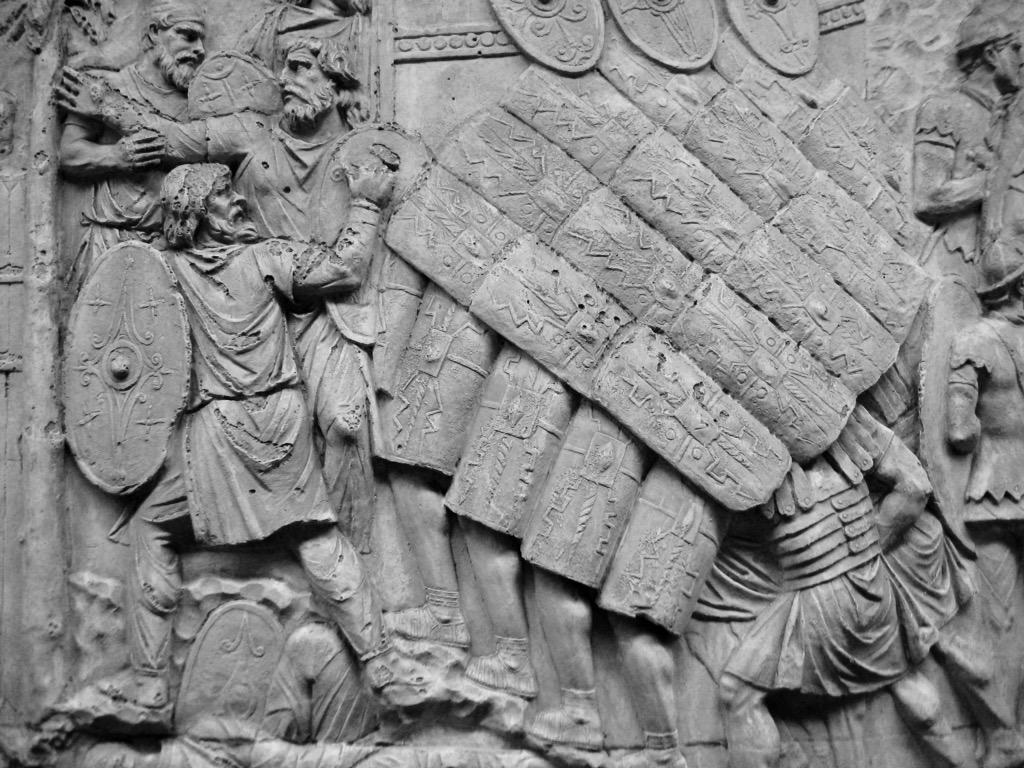
1) Gaius "Caligula" Caesar was assassinated on this day in 41 AD - by all accounts thoroughly deserved; yet the word 'assassination' tells us little, and it is easy to forget the human reality of what such revolutions often entail. Suetonius gives us a healthy reminder: 

2) "On 24 January, Gaius was slow to rise as he was queasy after a heavy banquet the night before. His friends persuaded him to come out with them along a covered walk. There he met some young stage performers from a noble family rehearsing their presentation..." 

3) "He stopped to view and encourage the theatre troupe and said he would have eagerly attended their performance later if it was not for the cold. At that point the prefect Sabinus ordered his centurions to clear away the crowd and then asked Gaius for the day's watchword..." 

4) "Gaius replied with the watchword, 'Jupiter.' From behind him the tribune Cassius Chaerea yelled, 'So be it!', pulling his sword and striking Gaius as he turned his head, splitting his jawbone. Gaius fell and lay twitching on the ground but then said: 'I am still alive'..." 

5) "So word went round, 'Strike him again!' Eventually Gaius succumbed to thirty further wounds including sword thrusts through his genitals. His litter-bearers had tried to defend him, using their litter poles as spears. Finally, his German bodyguard appeared.." 

6) "..They were too late to be of any help but did kill several of the assassins and a few innocent senators into the bargain. His wife Caesonia was killed at the same time, stabbed with a sword by a centurion, and his baby daughter's brains were smashed out against a wall." 

• • •
Missing some Tweet in this thread? You can try to
force a refresh
